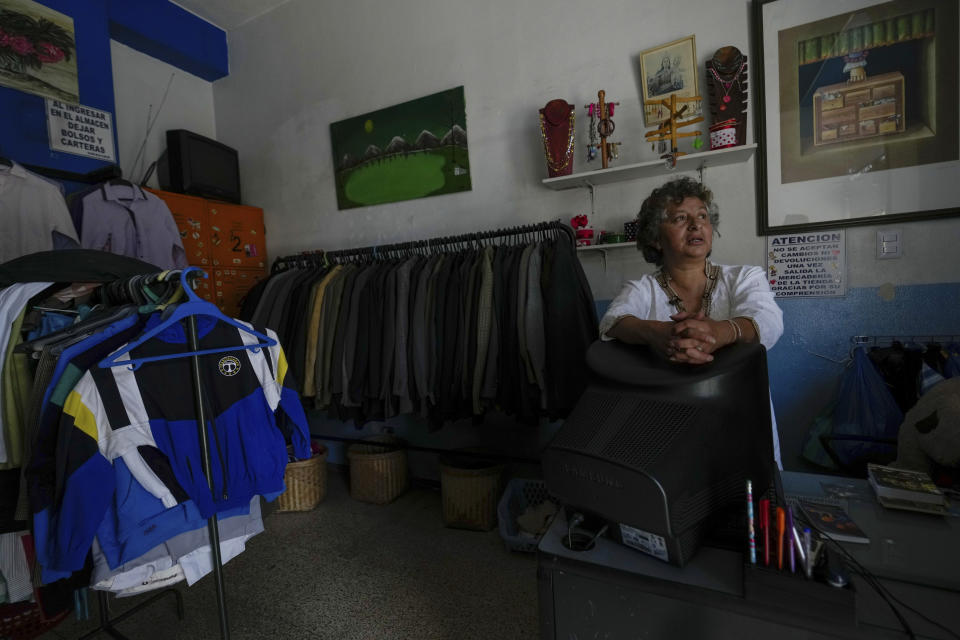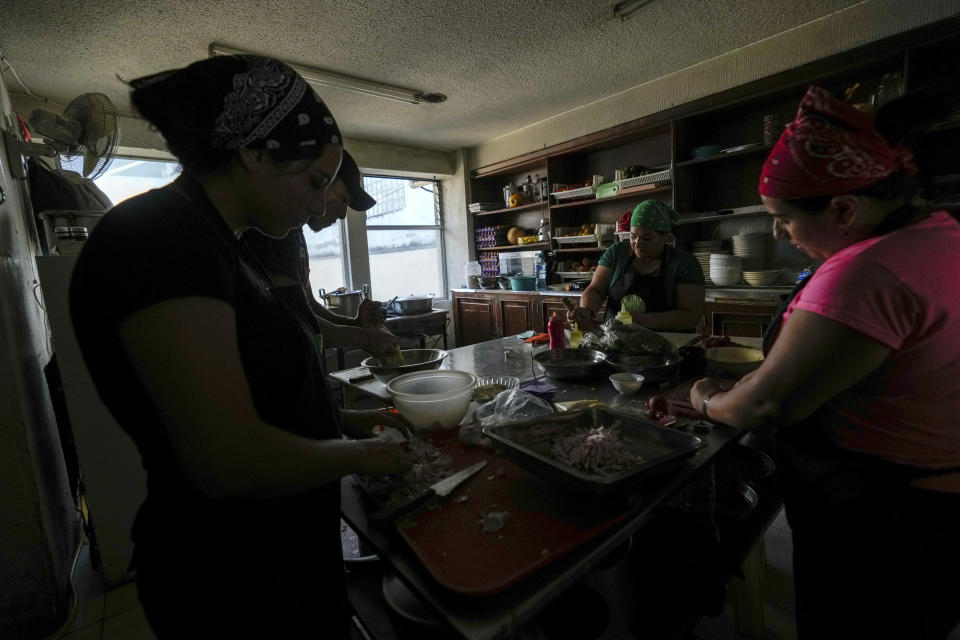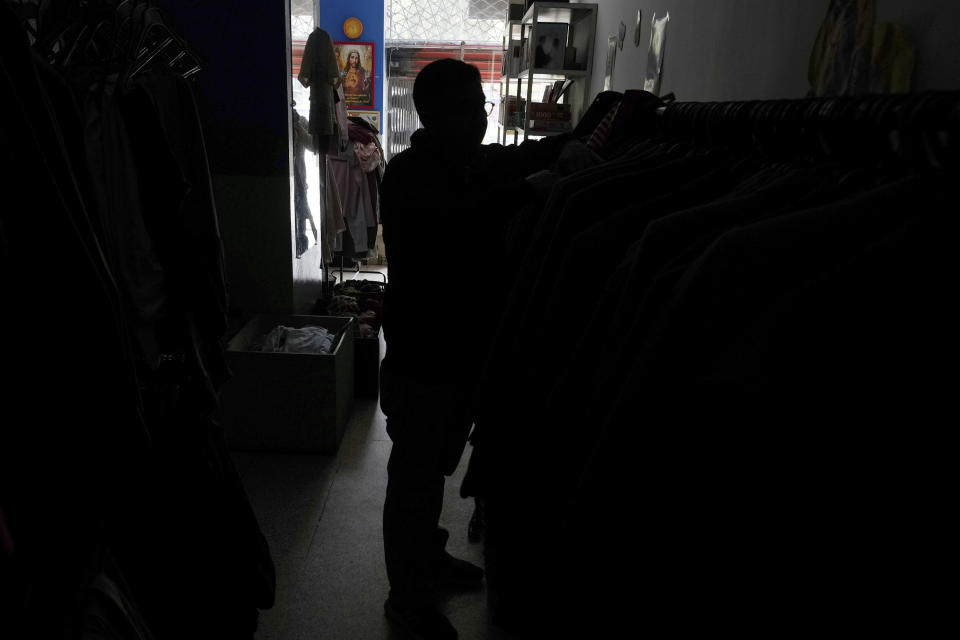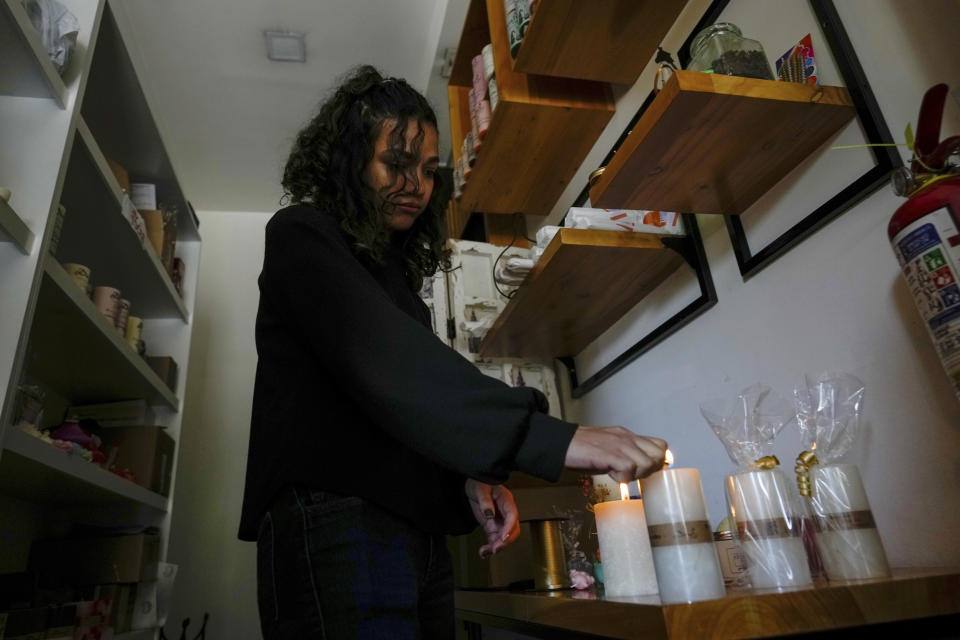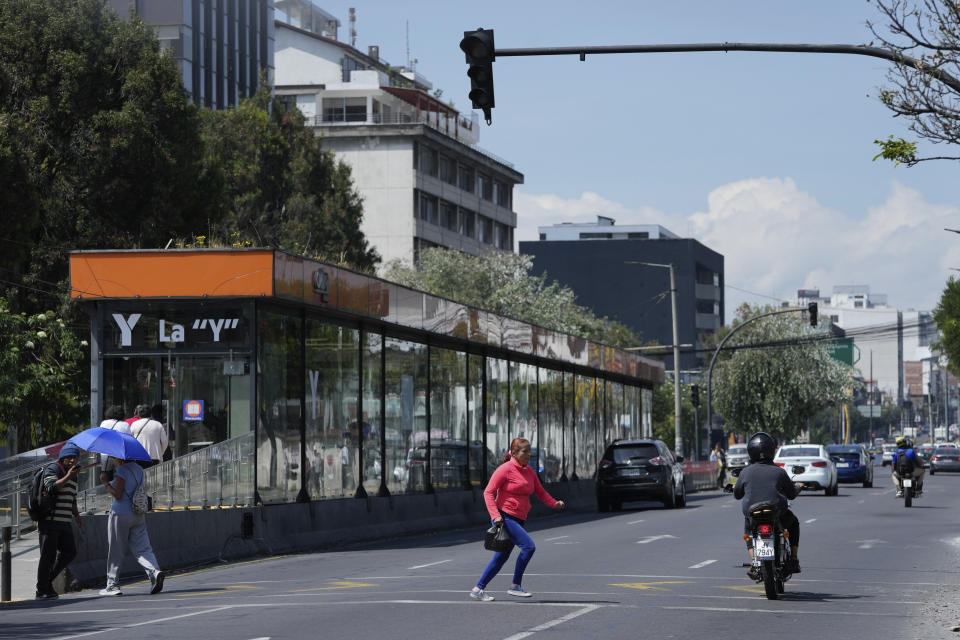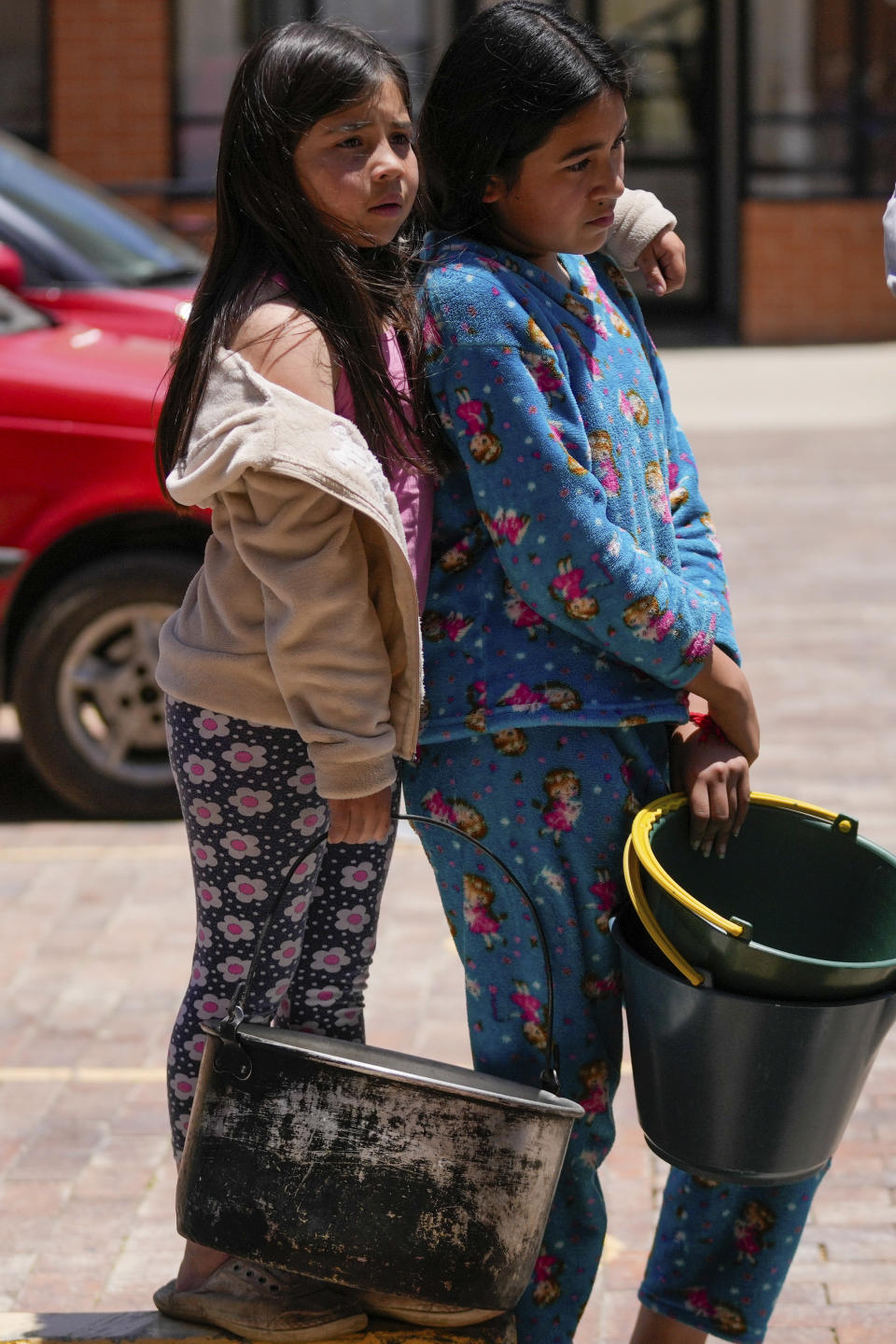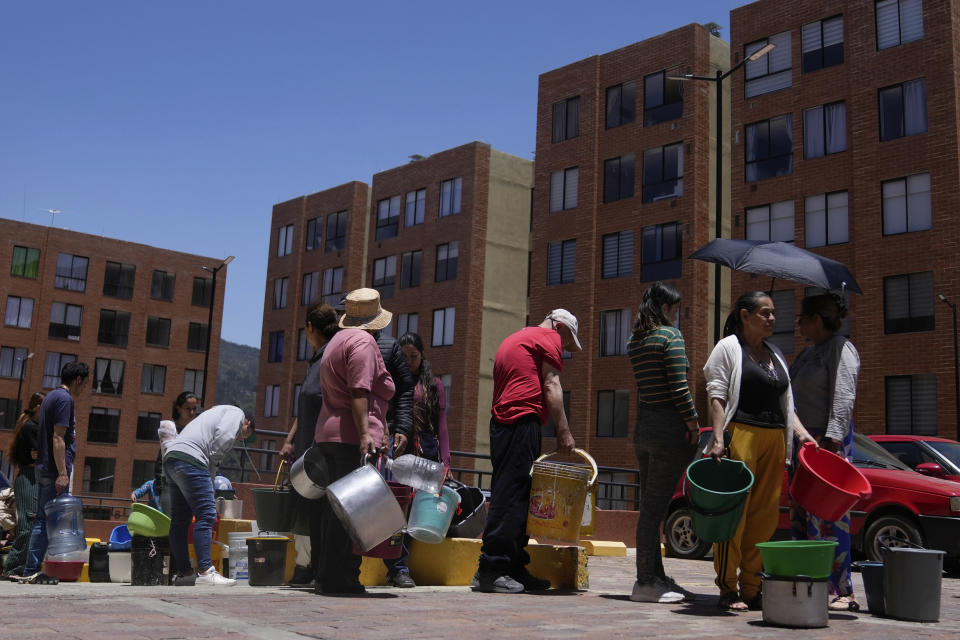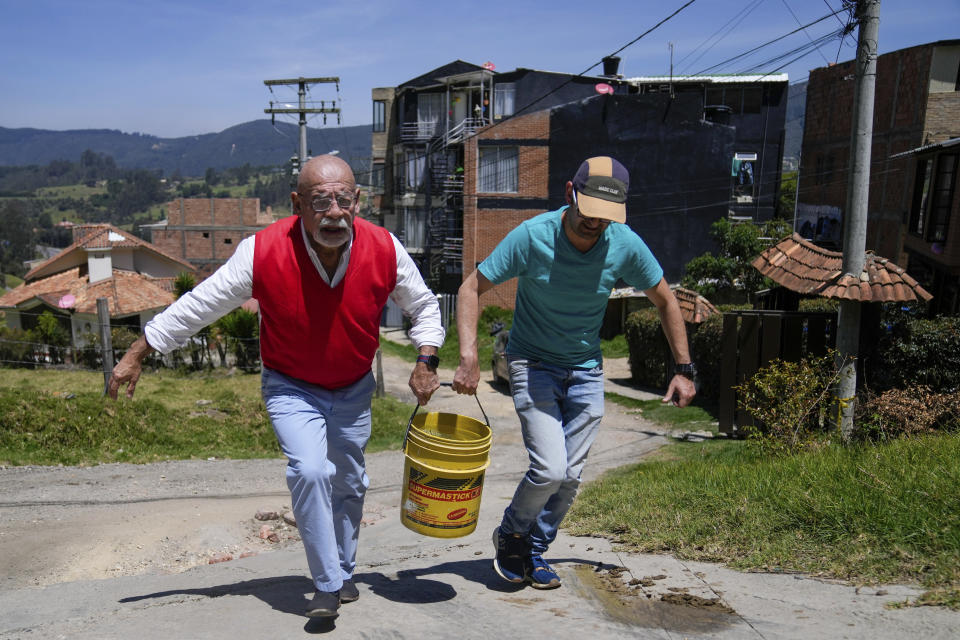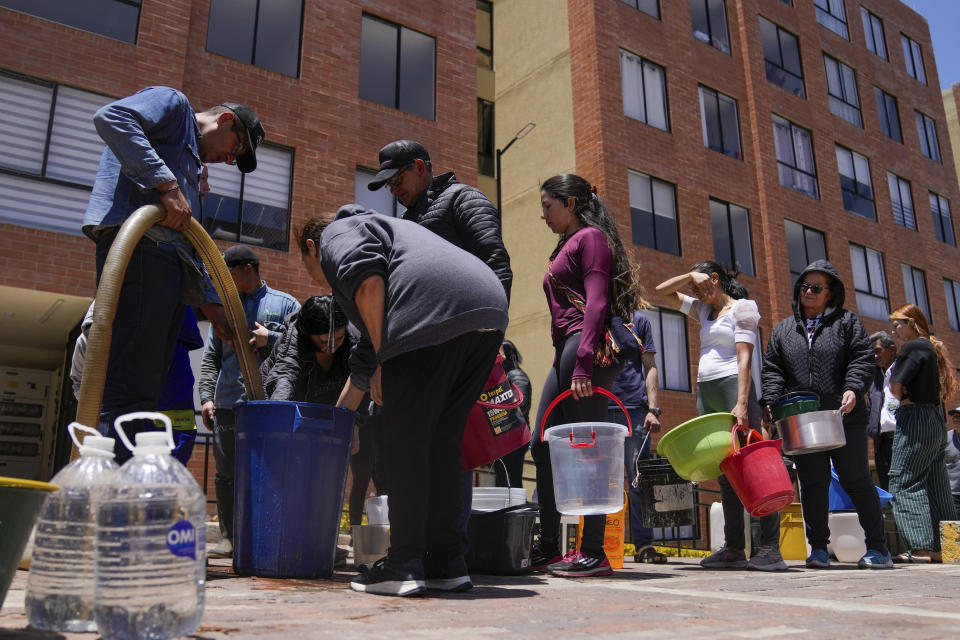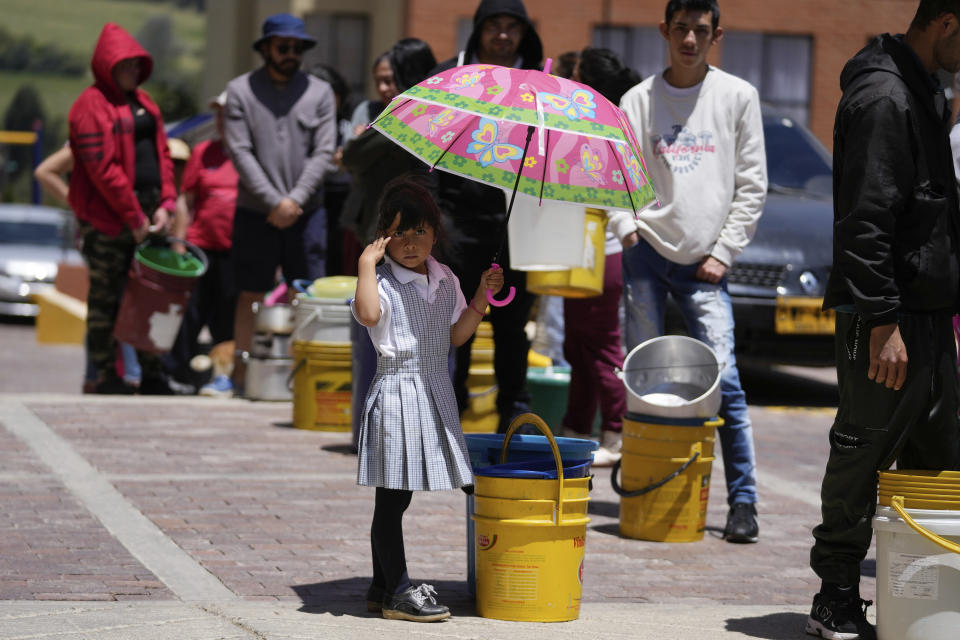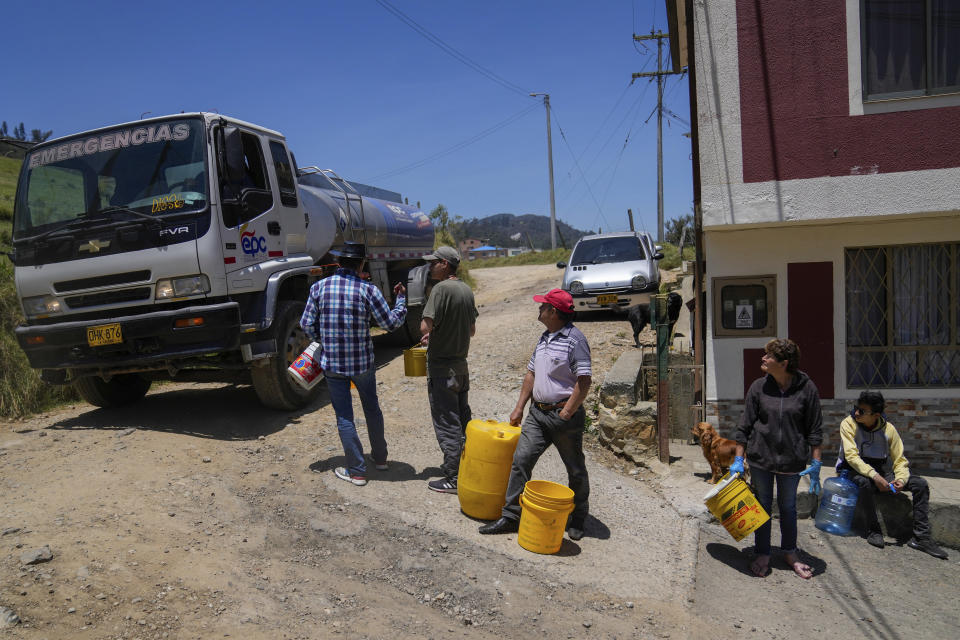Ecuador rations electricity as drought persists in the northern Andes
QUITO, Ecuador (AP) — Ecuador on Tuesday began to ration electricity in the country's main cities as a drought linked to the El Niño weather pattern depletes reservoirs and limits output at hydroelectric plants that produce about 75% of the nation’s power.
The power cuts were announced on Monday night by the ministry of energy, which said in a statement that it would review its decision on Wednesday night.
“We urge Ecuadorians to cut their electricity consumption in this critical week,” the statement read. “And consider that each kilowatt and each drop of water that are not consumed will help us face this reality.”
The power cuts in Ecuador come days after dry weather forced Colombia’s capital city of Bogotá to ration water as its reservoirs reached record lows, threatening local supplies of tap water.
In the town of La Calera, on the outskirts of Bogotá, water trucks visited neighborhoods where water has been scarce recently because a local stream that supplies the town with water is drying up. Local residents lined up outside the water trucks with buckets to collect as much as they could carry.
“I'm worried about what's happening,” said Carlos Arturo Rueda, a 72-year-old who was gathering water from the truck. “We need to do more to preserve this precious liquid.”
Precipitation has diminished in Ecuador and Colombia this year due to warming temperatures in the south Pacific Ocean, which can cause floods along South America’s west coast but can also generate intense droughts in the Andean valleys, where many of Ecuador’s and Colombia’s main cities are located.
In Colombia, where hydroelectric plants are also struggling, officials said on Tuesday that they are considering awarding tax credits to companies that reduce their electricity consumption.
During the first week of April Colombia suspended electricity exports to Ecuador in an attempt to save energy for domestic needs. Colombia gets around 70% of its electricity from hydroelectric plants.
Camilo Prieto, a climate change professor at Bogotá's Javeriana University, said that the current spell of dry weather is not as extreme as previous droughts related to El Niño, such as a drought that caused power cuts in Colombia in the early 1990s. But he added that demand for electricity has grown over the years in Colombia and Ecuador, while these countries have made the “mistake” of continuing to rely on hydroelectric power.
“The world has learned that an energy mix that is diverse and combines different kinds of low-emission sources is safer and more reliable,” Prieto said. “If demand continues to grow and the energy mix in these countries is not diversified, they will continue to be vulnerable.”
On Tuesday newspapers around Ecuador published schedules for power cuts in cities that included Quito, Cuenca and Guayaquil, where most homes and many businesses were left without power for three hours.
Ecuador had also experienced power cuts, related to droughts in October, January and February.
Karen Verduga, the owner of a restaurant with six employees in Quito, said that she was afraid some of her frozen meats and vegetables would decompose if the current round of power cuts continues.
She said that her workers could not use blenders to make soups and sauces. Instead they were preparing food manually for several hours. “We’ve been forced to do things the old fashioned way,” Verduga said.
Some merchants said the power cuts provided them with opportunities.
Oriannis Arcano, a saleswoman at a small candle shop, said that the blackouts have helped to boost her sales. Yet, she said the blackouts presented problems for her business because “most people want to pay with cards” that don’t work when there’s no electricity.
During an event in Guayaquil, Ecuador’s largest city, President Daniel Noboa said that some power plants in the country had been “sabotaged” by his political rivals. Ecuador is set to hold a referendum Sunday where some of Noboa's security policies will be voted on, including a proposal to legalize the extradition of drug traffickers and other dangerous criminals.
Noboa did not provide any evidence of the alleged acts of sabotage, but said investigations will be launched. He also wrote a message on X, formerly Twitter, asking Ecuador’s energy minister to resign.
“Threats to our country require strong decisions,” Noboa wrote in the message where he also said that the nation's government will subsidize electricity bills in April. “The people of Ecuador cannot pay for the corruption and inefficiency of a few miserable” officials.
___
Rueda reported from Bogotá
___
Follow AP’s coverage of Latin America and the Caribbean at https://apnews.com/hub/latin-america
